A Note from the Chair
Hello All, and welcome back from Reading Days for the rest of fall semester!
Reading is, of course, central to our work in the English department, and I’d like to offer this quote from Jeannette Winterson’s memoir Why Be Happy When You Could Be Normal? about reading when she was a college student:
The more I read, the more I felt connected across time to other lives and deeper sympathies. I felt less isolated. I wasn’t floating on my little raft in the present; there were bridges that led over to solid ground. Yes, the past is another country, but one that we can visit, and once there we can bring back the things we need.
Literature is common ground. It is ground not managed wholly by commercial interests, nor can it be strip-mined like popular culture—exploit the new thing and then move on.
There’s a lot of talk about the tame world versus the wild world. It is not only a wild nature that we need as human beings; it is the untamed open space of our imaginations.
Reading is where the wild things are. (Winterson 2012 144)
In your reading, when you come across a quote about how and why literature matters and sustains us, please feel free to email it to me, at krhett@gettysburg.edu. I’d like to post the English department hallways with reminders of our common ground, of why words matter.
Kathryn Rhett
Chair, Department of English
New English Faculty
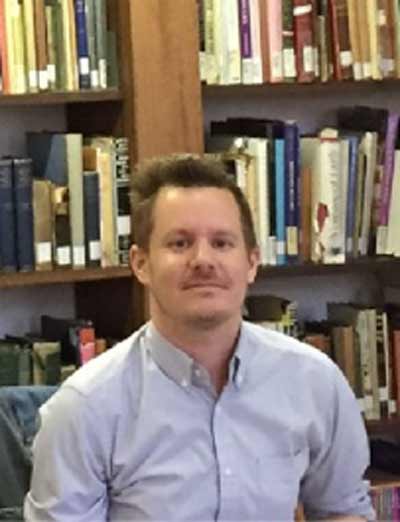 Sean Kennedy joins the English Department from the City University of New York, where he spent the last seven years working on his PhD, as well as being part of several movements for change regarding labor insecurity and low pay for adjunct faculty. He was previously a professional journalist who wrote and edited for a number of publications. He received his BA in English and modern studies from the University of Virginia, his MFA in fiction writing from Rutgers University—Newark, and his PhD in English from the Graduate Center of the City University of New York. This semester, he is teaching ENG 235: Survey of African American Literature and ENG 386: Rethinking Race and the Nation. At Gettysburg, he has enjoyed his classroom experiences co-learning with students, as well as the visual art offerings of both the Schmucker Art Gallery and Special Collections. He encourages students to ask him anything they want, regardless of whether they are registered for his classes or not. Next semester, he will be teaching ENG 378: Autobiography in African American Narrative and would love for as many students as possible to enroll. In addition to the formal writing components of the course, we'll have opportunities to experiment with informal autobiographical analysis, which I think will make the class especially edifying and fun.
Sean Kennedy joins the English Department from the City University of New York, where he spent the last seven years working on his PhD, as well as being part of several movements for change regarding labor insecurity and low pay for adjunct faculty. He was previously a professional journalist who wrote and edited for a number of publications. He received his BA in English and modern studies from the University of Virginia, his MFA in fiction writing from Rutgers University—Newark, and his PhD in English from the Graduate Center of the City University of New York. This semester, he is teaching ENG 235: Survey of African American Literature and ENG 386: Rethinking Race and the Nation. At Gettysburg, he has enjoyed his classroom experiences co-learning with students, as well as the visual art offerings of both the Schmucker Art Gallery and Special Collections. He encourages students to ask him anything they want, regardless of whether they are registered for his classes or not. Next semester, he will be teaching ENG 378: Autobiography in African American Narrative and would love for as many students as possible to enroll. In addition to the formal writing components of the course, we'll have opportunities to experiment with informal autobiographical analysis, which I think will make the class especially edifying and fun.
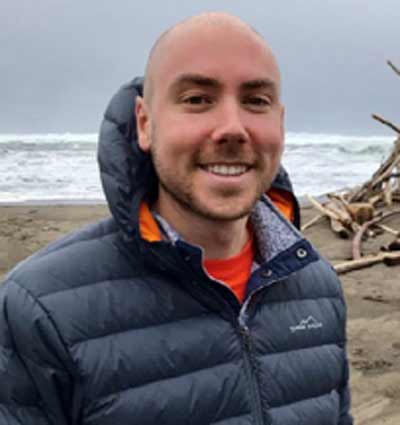 Matt Barrett joins the English Department from University of California, Davis, where he taught creative writing and intro to college writing classes for two years. Previously, he taught composition and literature courses at the University of North Carolina at Greensboro during the 2015-16 school year. He received his undergraduate degree here at Gettysburg College, and his MFA in fiction from the University of North Carolina at Greensboro. This semester, he will be teaching ENG 101: Introduction to College Writing. He’d like to spend more time on the battlefield, not just for the history but also for walking, running, people watching, etc. He loves that Gettysburg College is a community where everyone has an opportunity to impact the school and contribute based on their own abilities. To him, “[i]t just feels like a place to belong. Go Bullets!” As an alumnus of Gettysburg, he always wanted to return but never expected he’d live across the country before he did.
Matt Barrett joins the English Department from University of California, Davis, where he taught creative writing and intro to college writing classes for two years. Previously, he taught composition and literature courses at the University of North Carolina at Greensboro during the 2015-16 school year. He received his undergraduate degree here at Gettysburg College, and his MFA in fiction from the University of North Carolina at Greensboro. This semester, he will be teaching ENG 101: Introduction to College Writing. He’d like to spend more time on the battlefield, not just for the history but also for walking, running, people watching, etc. He loves that Gettysburg College is a community where everyone has an opportunity to impact the school and contribute based on their own abilities. To him, “[i]t just feels like a place to belong. Go Bullets!” As an alumnus of Gettysburg, he always wanted to return but never expected he’d live across the country before he did.
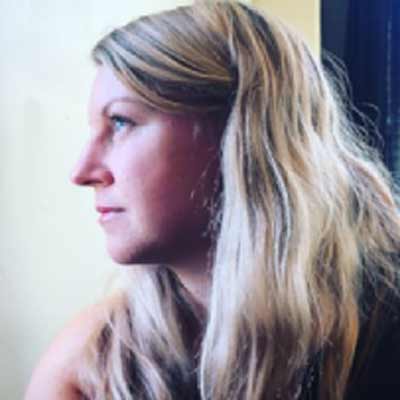 Molly Reid joins the English Department as the Emerging Writer Lecturer from the University of Cincinnati, where she was finishing and defending her dissertation in the PhD program. She received her BA from California Polytechnic University San Luis Obispo, her MFA in fiction from Colorado State University, and her PhD in literature and creative writing, fiction from the University of Cincinnati. This semester, she'll be teaching ENG 205: Introduction to Creative Writing and ENG 309: Prose Poetry and Flash Fiction. Outside of the classroom, she enjoys going for bike rides and running along the beautiful battlefield roads. She wants students to know that, “I love old school horror movies like Texas Chainsaw Massacre (the original). For strictly academic purposes, of course…” She thinks that everyone in Gettysburg has been so helpful and friendly and that her students are so intelligent. She’s excited and full of gratitude.
Molly Reid joins the English Department as the Emerging Writer Lecturer from the University of Cincinnati, where she was finishing and defending her dissertation in the PhD program. She received her BA from California Polytechnic University San Luis Obispo, her MFA in fiction from Colorado State University, and her PhD in literature and creative writing, fiction from the University of Cincinnati. This semester, she'll be teaching ENG 205: Introduction to Creative Writing and ENG 309: Prose Poetry and Flash Fiction. Outside of the classroom, she enjoys going for bike rides and running along the beautiful battlefield roads. She wants students to know that, “I love old school horror movies like Texas Chainsaw Massacre (the original). For strictly academic purposes, of course…” She thinks that everyone in Gettysburg has been so helpful and friendly and that her students are so intelligent. She’s excited and full of gratitude.
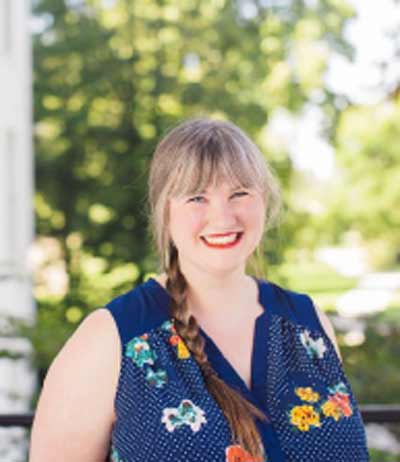 Melissa Forbes joins the English Department in a new position. Before coming to Gettysburg, she was in graduate school in Urbana, Illinois, where she taught a variety of courses including intro to film, professional writing, and on one occasion a senior writing seminar for biochemistry majors. She received her PhD in English with an emphasis in Writing Studies from the University of Illinois at Urbana-Champaign. In spring of 2018, she began as an adjunct professor but has moved to a new position as a visiting assistant professor. This semester, she is teaching ENG 101: Intro to College Writing, ENG 200: Multimodal Composition, and ENG 270: Nonfiction Across Media. Having taught at a Big 12 school for most of a decade, she loves how the liberal arts atmosphere of Gettysburg College allows her to build ongoing relationships with her students. In her own college career, the connections with her professors were important and she thinks it’s wonderful to see those connections from the other side. She’s been very impressed with how thoughtful and engaged her students are here.
Melissa Forbes joins the English Department in a new position. Before coming to Gettysburg, she was in graduate school in Urbana, Illinois, where she taught a variety of courses including intro to film, professional writing, and on one occasion a senior writing seminar for biochemistry majors. She received her PhD in English with an emphasis in Writing Studies from the University of Illinois at Urbana-Champaign. In spring of 2018, she began as an adjunct professor but has moved to a new position as a visiting assistant professor. This semester, she is teaching ENG 101: Intro to College Writing, ENG 200: Multimodal Composition, and ENG 270: Nonfiction Across Media. Having taught at a Big 12 school for most of a decade, she loves how the liberal arts atmosphere of Gettysburg College allows her to build ongoing relationships with her students. In her own college career, the connections with her professors were important and she thinks it’s wonderful to see those connections from the other side. She’s been very impressed with how thoughtful and engaged her students are here.
Submit to The Mercury: Art & Literary Magazine of Gettysburg College !
 We are accepting Submissions in: Art, Poetry, Short Fiction, and Creative Nonfiction.
We are accepting Submissions in: Art, Poetry, Short Fiction, and Creative Nonfiction.
Submissions for the 2019-20 edition of The Mercury are now open! Students are encouraged to submit any work that has not previously been published. Work for class (creative writing, art) is fair game. The Mercury has non-exclusive copyright, so while you are allowing us to print your work, you still own the rights; this means you can publish your piece elsewhere after it has been published in The Mercury. Reviewing is double-blind, so it will be an anonymous process.
We have updated our submission guidelines, so please read them carefully here: http://cupola.gettysburg.edu/mercury/submission_guidelines.html
The most important things to note are:
Once pieces are published they cannot be amended or removed from the Cupola.
Accepted authors will have a chance to review their final work before it goes to print. We will not print anything without your final consent.
Anonymous submissions are strongly discouraged. Get started here: http://cupola.gettysburg.edu/mercury/
Email Questions to: Ellianie Vega at vegael01@gettysburg.edu
Alumni News
Jackie Marotto ‘15
English Major with Writing Concentration and Women, Gender, and Sexuality Studies Minor
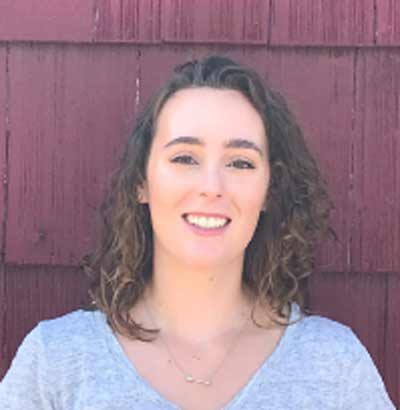 Jackie Marotto ‘15 graduated from Gettysburg College with a B.A. in English with a Writing Concentration and a minor in Women, Gender, and Sexuality Studies. In 2017, Marotto received a Masters in Public Health (MPH) in Health Education and Behavioral Sciences from Rutgers University. This fall, she began pursuing a Masters of Science in Regulatory Affairs and Quality Assurance from Temple University. Currently, she works as a Senior Scientific Writer at Bristol-Myers Squibb in Lawrenceville, NJ. In this position, Marotto “serve[s] as a coordinating author working with cross-functional groups on submission-facing documents to worldwide health authorities. These contain aggregate data on the safety of our products, and include documents such as Periodic Benefit-Risk Evaluation Reports (PBRERs), Development Safety Update Reports (DSURs), and Risk Management Plans (RMPs), all of which are regulated by global guidance.”
Jackie Marotto ‘15 graduated from Gettysburg College with a B.A. in English with a Writing Concentration and a minor in Women, Gender, and Sexuality Studies. In 2017, Marotto received a Masters in Public Health (MPH) in Health Education and Behavioral Sciences from Rutgers University. This fall, she began pursuing a Masters of Science in Regulatory Affairs and Quality Assurance from Temple University. Currently, she works as a Senior Scientific Writer at Bristol-Myers Squibb in Lawrenceville, NJ. In this position, Marotto “serve[s] as a coordinating author working with cross-functional groups on submission-facing documents to worldwide health authorities. These contain aggregate data on the safety of our products, and include documents such as Periodic Benefit-Risk Evaluation Reports (PBRERs), Development Safety Update Reports (DSURs), and Risk Management Plans (RMPs), all of which are regulated by global guidance.”
- Were any of your English classes at Gettysburg particularly impactful, or any of your English professors particularly influential?
- I remember being nervous for English 299, which I took with Professor [Joanne] Myers. It was definitely a challenging class, but it was also rewarding when looking back and realizing how much I had learned in just one semester. Examining language critically, learning to think outside the box, and considering the meaning of language on a deeper level changed how I approached both reading and writing throughout the remainder of my classes at Gettysburg.
- While at Gettysburg, were you involved with any activity/activities outside of the classroom that helped you gain valuable experience?
- I was on the Cross Country and Track & Field teams, and I also worked a few days a week in the Athletics Equipment Room. Both of these helped me develop organizational skills to allow enough time for the activities I had to do, as well as the ones I wanted to do. I have more recently realized that learning these time management skills have translated into establishing a good work/life balance.
- How do you think your degree helped you in your endeavors after graduating from Gettysburg?
- My degree in English allowed me to consider a variety of careers after graduation, such as one in a health- related field, a future career that isn’t typically considered English-related. However, after my professors at Gettysburg challenged me to think critically and taught me how to communicate effectively, it was a seamless transition to implement these same principles into the concepts of health education and behavioral sciences. More recently, communicating in a straightforward manner has become an everyday part of my job, as part of writing message-driven documents.
- Is there anything else you would like to add?
- English majors I think are quite often asked what they want to do after graduation, because it is seen as one of the more “limiting” degrees, but I simply do not think this is true. Earning my English degree opened a variety of options to me after Gettysburg, including my current position as a scientific writer, a job that I hadn’t even known existed when I was at Gettysburg. My advice is to search for a career that will allow you to merge your English degree with something you are passionate about.
Five English & Writing alums returned to campus for a Homecoming Alumni Panel: Rick Deutsch (2000), Sara (Harenchar) Levinson (2009), Matt Barrett (2011), Molly Yingling (2012), and Joe Kirkenir (2014). Thank you for coming back to talk with students about your career paths!
Student News
Featured Summer internship: Benjamin Lowenberg ‘20
English Major, Religious Studies Minor
- What was your internship?
- I was an Intern at BOLD Worldwide, a digital marketing firm.
- Where was your internship?
- BOLD Worldwide is located on Wall Street in New York City.
- Could you describe what your internship entailed?
- I was tasked this summer with both copywriting and performing sales calls with current and potential clientele. We held several successful events in which I was able to build my PR skills and marketing abilities.
- What were a few of the best parts of your experience?
- What I really enjoyed was working on projects with my peers and having them give me complete autonomy with my work and constant feedback. One of the best parts of my internship was when we hosted a business marketing event and I had the opportunity to meet some incredibly successful and inspirational people like Chad Metcalf, a retired Navy Seal turned PGA Tour Golfer, who is currently working towards his Master of Business degree.
- How have your English studies at Gettysburg aided you in your internship?
- My English studies at Gettysburg College were tremendously beneficial in that I was able to work at a high level with other copywriters as well as being able to write in both a creative and effective way. Studying English has also given me the ability to be able to review and edit writing at an advanced pace.
- Is there anything else you would like to add?
- I was also able to see how a successful business on Wall Street was operated from every aspect, including accounting and account management. The three months I worked at BOLD Worldwide was a truly remarkable experience and a growing moment in my life.
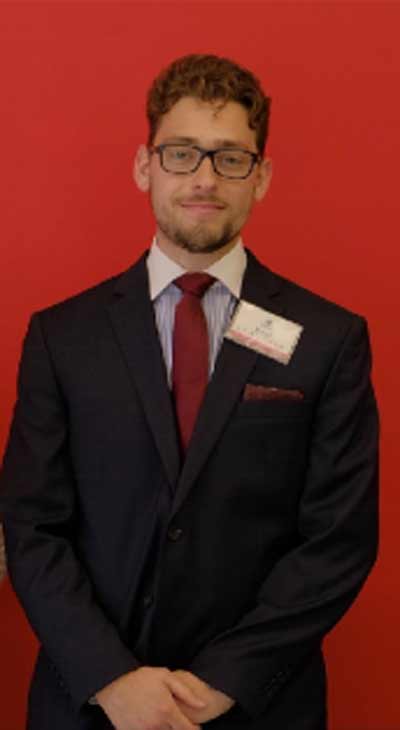
Announcements
On the Calendar
42nd Annual Croll Lecture: Professor Tita Chico :Thurs, Oct 24th 4:30 p.m. Joseph Theater
Mesha Maren Fiction Reading & M. Randall O’Wain Nonfiction Reading: Wed, Oct 30th 5:00 p.m. Joseph Theater
Ada Limon Poetry Reading: Mon, Nov 11th 5:00 p.m. Lyceum (4th floor Penn Hall)
Writing Center Hours
| Day | Time |
|---|---|
| Sun. | 4-10 p.m. |
| Mon. - Thurs. | 4-10 p.m. |
| Fri. & Sat. | Closed |
The Gettysburg College Writing Center is located on the ground floor of Breidenbaugh Hall and open for drop-in visits by student writers Sunday through Thursday from 4:00 PM-10:00 PM. We are staffed by fifteen student tutors this semester from a wide variety of disciplines and departments across campus.
Students are welcome at any point in the writing process although last minute appointments are usually less productive than visits that allow sufficient time for revision before the project is due. So, please come early and often! Our tutors also find it helpful if writers bring with them a written copy of the assignment they are working on and at least one paper copy of the essay itself, printed back to back.
Although we can’t be a “fix it” service for written work, students can expect an intelligent conversation about their writing during a session that usually lasts about a half hour. During most sessions, our tutors will begin by asking about the assignment to ensure an appropriate connection between that assignment and what the student is working on. Next, they will look for the paper’s main point to make sure it is clearly expressed, then turn to the structure of support for this main idea, paragraph coherence, transitions, and potential problems at the level of the sentence. A serious effort is made to keep the student writer in an active role, encouraged through questions and suggestions to consider making changes in the work at hand.
Writing project of all kinds are welcome, everything from lab reports to creative pieces to capstone research papers. Work longer than ten pages, however, may require multiple sessions.
Casagrande Corner
Recognizing the importance of travel in supporting and strengthening research and learning for faculty and students, Dr. Peter J. '60 and Pamela M. Casagrande have established an endowed fund to support domestic and international travel for both faculty and students in the English department.
Faculty and students are invited to apply directly to the chair for grants of up to $500 to support travel for research, professional presentations, conference attendance or other special projects that contribute to scholarship, teaching, and learning.
New department button!
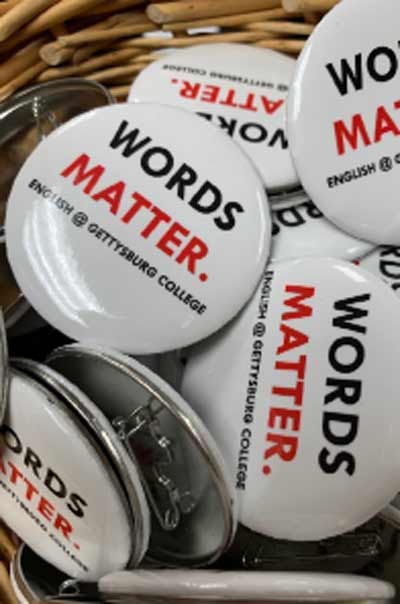 Pick up our new English department button in the office!
Pick up our new English department button in the office!
Have an idea for a future button? Email Jody Rosensteel at jrosenst@gettysburg.edu
written by
Maddie Neiman ‘21
Chloe Wojcik ‘20